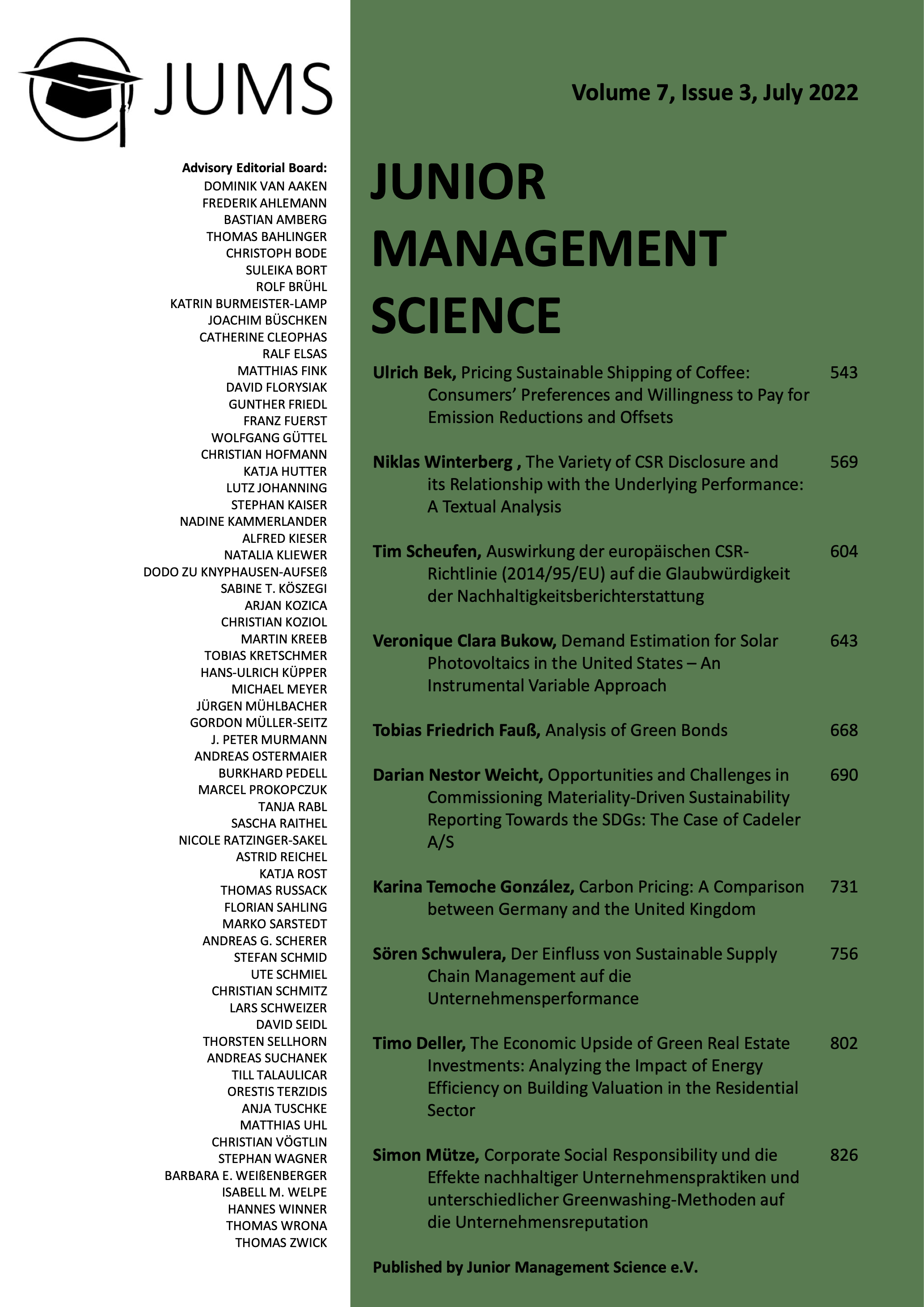Abstract
Frequently and recently tightening and expanding sustainability reporting policies and requirements can pose significant administrative burdens on SMEs upholding a strong culture of accountability to their stakeholder network. This seminal case study examines how a Danish offshore wind farm commissioner can efficiently (1) navigate towards credibility in and (2) derive actionable insights from their sustainability (reporting) integration trajectory by capitalizing on the increasingly emphasized materiality principle. Group-based Fuzzy AHP and Textual Analysis aim to excavate and assess senior managers’ and external stakeholders’ preferences based on the GRI Standards and the UN’s SDG targets. Internal priorities emphasize safety, compliance, and profitability, whereas external stakeholders’ and their groups’ priorities exhibit mixed findings on their type and extent of alignment with the former. Content elements assigned higher relative importance tend to be more robust to changes in decision-makers’ uncertainty and verbal bias. The author confirms that a simplicity-informativeness trade-off tends to be driven by stakeholder grouping and that a data-driven, subject-based, and objectifying approach should be complemented with context, managerial judgment, and process iteration.
Keywords: Sustainability; materiality; prioritization; credibility; actionability.

This work is licensed under a Creative Commons Attribution 4.0 International License.

